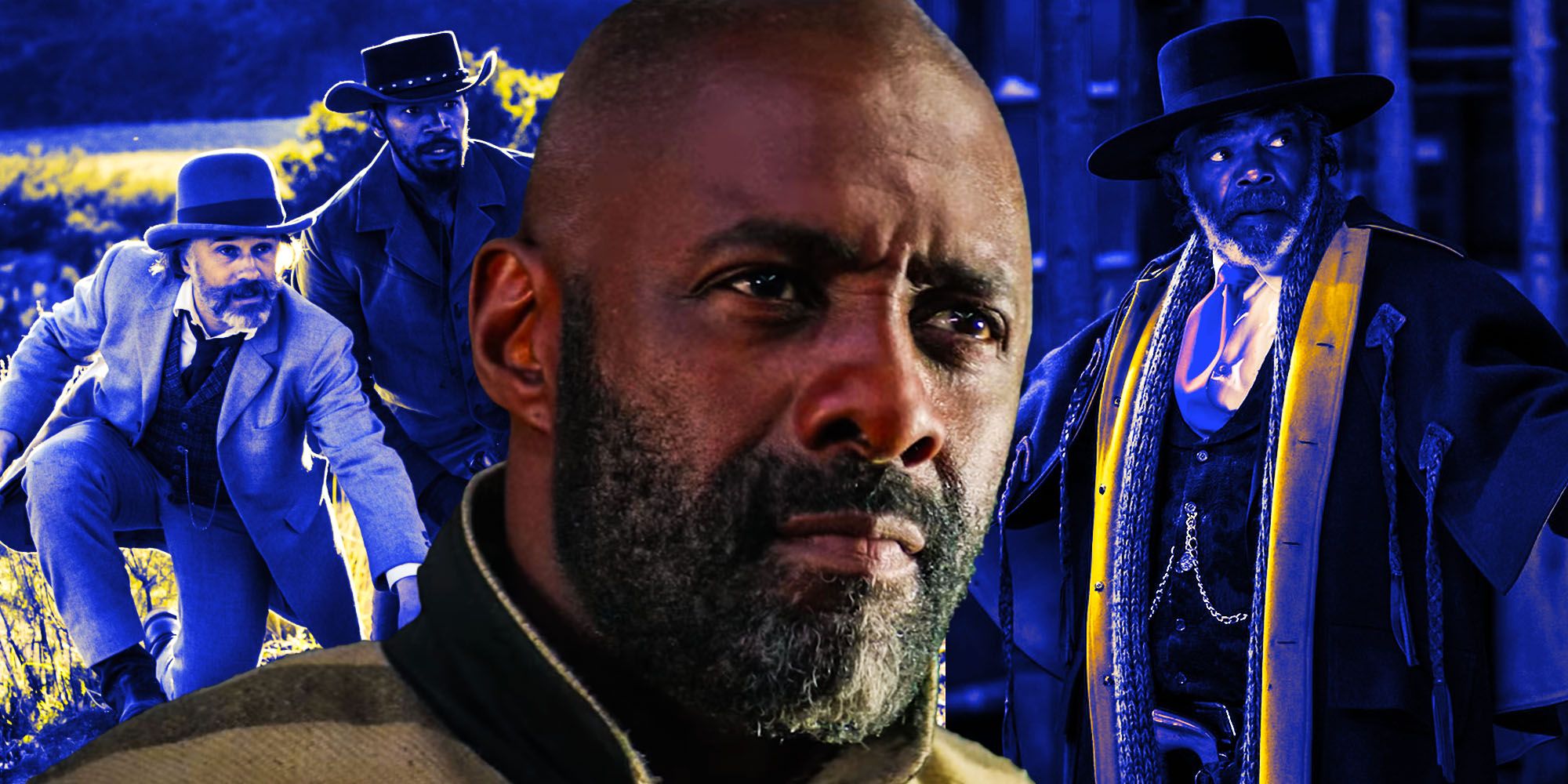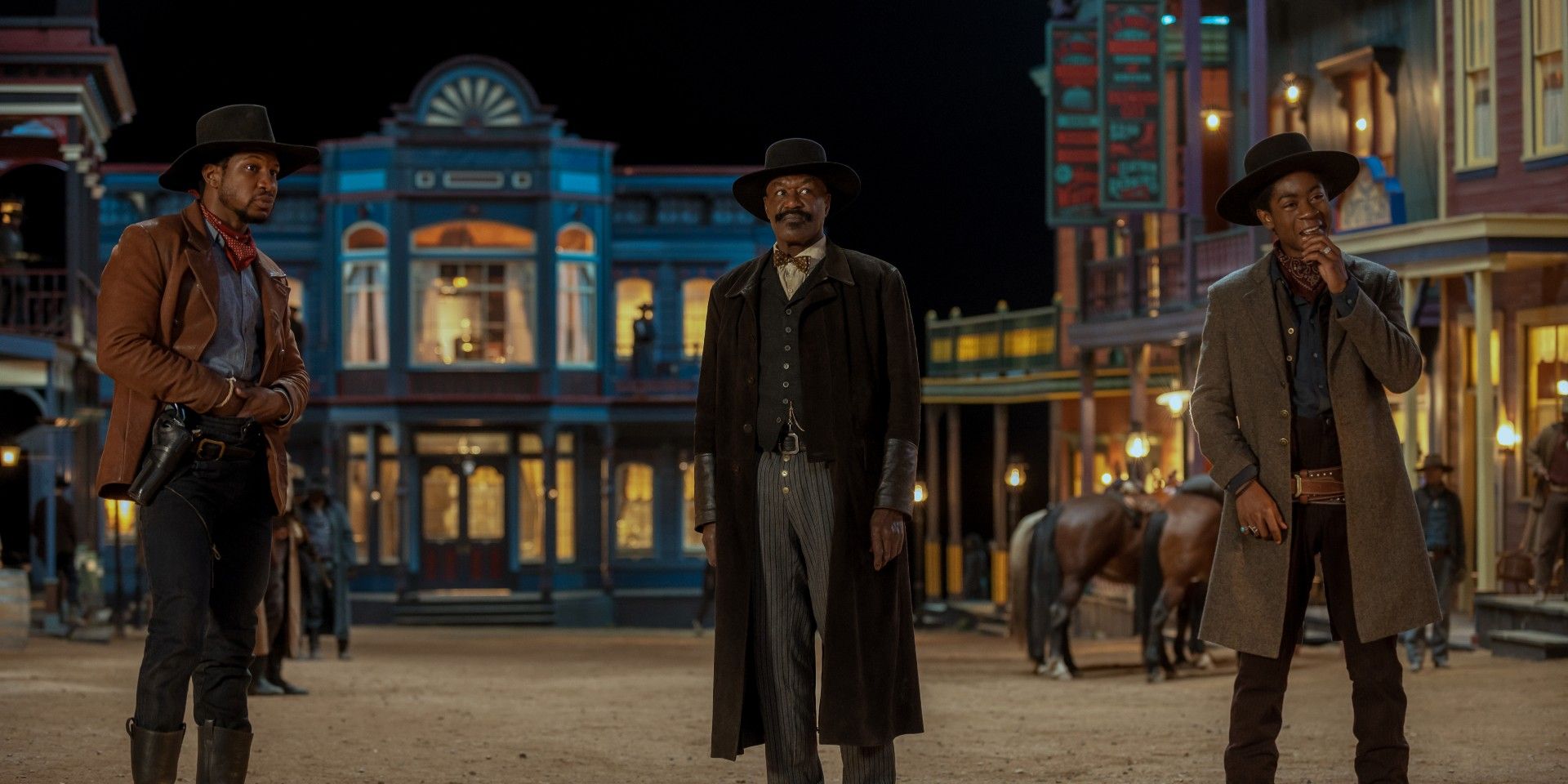The Harder They Fall follows classic Western traditions in a way that might be more successful in revitalizing the genre than Quentin Tarantino's attempts. Director Jeymes Samuel's adherence to tropes and imagery found in spaghetti Westerns give the film an old-fashioned feel, but the all-black cast, slick and stylish action, and contemporary soundtrack help update the aesthetics for modern audiences. These elements could potentially prove how effectively fun Western-style filmmaking and storytelling are and pave the way for the genre's revival in the streaming era.
The influence of the classic Western is present all across cinema to this day, yet there are few recent films that truly embrace the genre in its purity. There have been gritty, revisionist neo-Westerns acting as subversive historical commentary in the past decade, but the Western as a tale of classic American heroism and adventure seems to have mostly disappeared. Of course, Westerns themselves have never stayed the same, as the late-period Italian spaghetti Westerns of the mid-sixties and early seventies favored morally grey anti-heroes and brutal violence over the Americana frontier idealism of the preceding years. Both of these periods had also inspired a Western revival in the nineties.
Despite their varying tones and themes, all of these Westerns shared common traits that attracted audiences in each era. These films were action-adventure spectacles with larger-than-life characters (sometimes based on real-life people, as with The Harder They Fall's characters), all captured in mythic storytelling that breathed excitement into dusty history. Even the lower-budget spaghetti Westerns had an ambitious scale that elevated their distinctively pulpy material into epics. That's what's missing from the more dramatic Westerns in recent years, though Quentin Tarantino has tried to bring back the swashbuckling gunslinger figure, most notably in Django Unchained (itself a reference to the spaghetti Western Django).
The Harder They Fall feels fresh precisely because of how much it incorporates these time-honored, crowd-pleasing elements of the classic Western. The film's cast, which more accurately reflects the racial diversity of the real Old West, certainly diverges from typical representation in Westerns, but the plot follows a remarkably traditional structure. Jeymes Samuel lovingly embraces archetypes like the outlaw hero, the marshal who must work with him, and a gang of bandits who take over a town, as well as typical Western trope scenarios like train heists, bank robberies, and, of course, shootouts. It's less a post-modern deconstruction of the genre and more of a genuinely classic Western of the past seen through the lens of a present-day filmmaker.
Tarantino and Samuel both draw from the same sources so reverently that current audiences might conclude that The Harder They Fall is trying to replicate Tarantino's signature style. The fact, though, is that both filmmakers are drawing from Western roots and trying to capture that feeling of daring and adventure that drew people to the genre in the first place. While the sheer ugliness of Django Unchained's historical antebellum slave plantation setting mired it in controversy, The Harder They Fall presents a significantly more glorified picture of black gunslingers, lending a heightened sense of fun and inclusiveness to ages-old Western tropes that a new generation of film buffs can discover.


